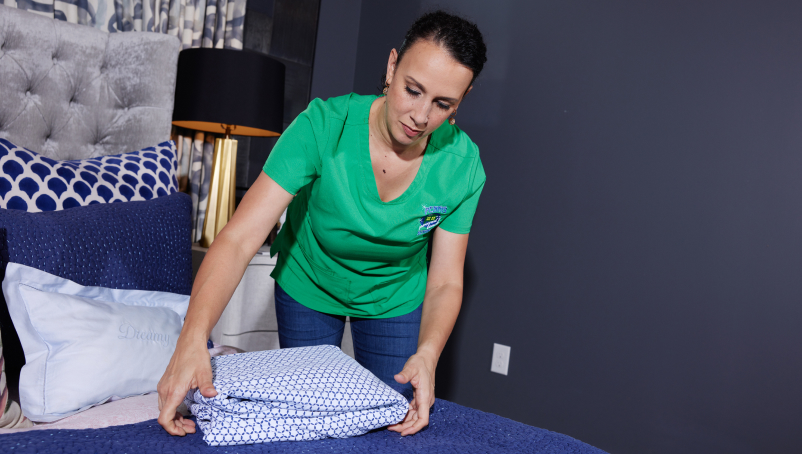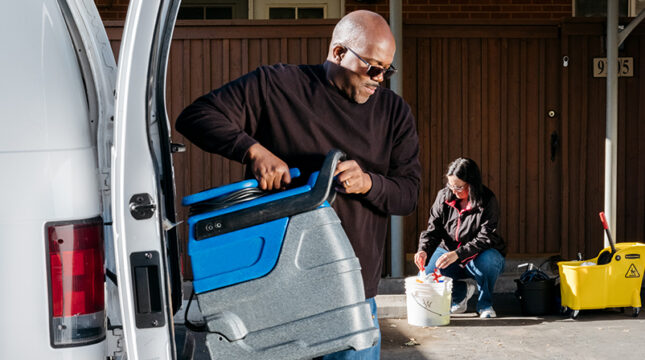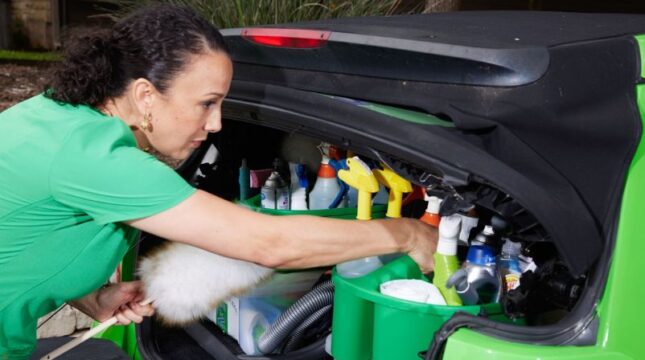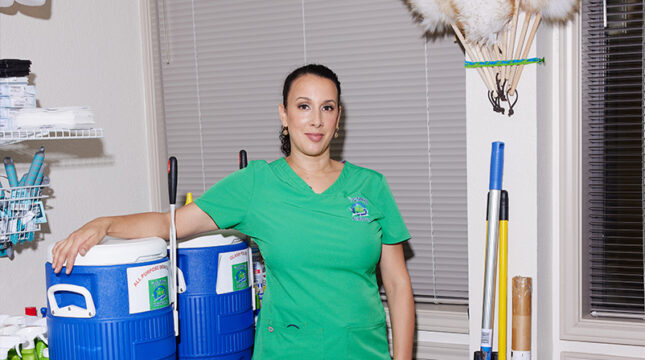How to start a cleaning business in Michigan
Many unique opportunities await cleaning businesses in the state. But before you get to work, you need to do the legwork to bring your business up to speed.
These five step-by-step instructions should precede your first job or your first client.
1. Register your business with the state
In Michigan, registering your business with the state varies based on your business structure. If you’re operating as a limited liability company (LLC), limited partnership (LP), or corporation, you need to register with the Michigan Department of Treasury or the Michigan Secretary of State.
You can complete registration online through the Michigan Department of Treasury’s Online New Business Registration process or the Corporations Online Filing System (COFS) through the Michigan Secretary of State.
However, if you’re a sole proprietor, there’s no need for state registration.
2. File a fictitious business name statement, if needed
Suppose you plan to start your cleaning business and operate under a name other than your legal name (e.g., “John Smith’s Cleaning Services”). In that case, you may need to file a “Doing Business As” (DBA) or fictitious business statement with the appropriate county or city government.
3. Get an Employer Identification Number (EIN)
An Employer Identification Number (EIN), or Federal Tax Identification Number, is typically required if your cleaning business has employees or if you operate as a corporation or partnership.
You can obtain an EIN from the IRS – and you’ll need to to pay your business taxes. Just answer a few questions, pay a small fee, and you will receive the EIN paperwork within a few days.
4. Apply for a business license
To determine if your area requires a business license, a cleaning business owner must contact your local city or county government. Specialized cleaning services, such as upholstery and post-construction, may need special licenses, and you might need to meet certain safety and environmental regulations.
The type of license you need also depends on your business structure (sole proprietorship, corporation, LLC, etc.). Business owners should visit the Michigan Secretary of State’s website for specifics to get started.
5. Obtain a sales tax permit (optional)
Residential cleaning services in Michigan are generally not subject to sales tax. But businesses that sell tangible personal property in addition to providing labor or services are required to get a sales tax license.
You probably don’t need to register for sales tax if you operate a cleaning business that solely provides residential cleaning services.
Sales tax requirements can vary, and it’s always best to consult with a tax professional or the Michigan Department of Treasury to ensure compliance with the specific regulations in your area.
Insurance for starting a cleaning business in Michigan
Insurance is a critical part of any business plan and budget. And cleaning insurance can provide financial protection when you need it most.
The right business insurance can help cover your business from potential liabilities such as property damage and the fallout after an injury. It can help ensure that your business continues without being weighed down by unexpected expenses. And it can make your business look more professional and ready for business in a competitive field.
Business insurance for a cleaning business is often a policy that combines a few different types of insurance. Here is a list of suggested coverages:
General Liability insurance
General liability coverage in Michigan can help protect against some of the most common business risks and accidents. This liability policy can help shield your business from losses associated with non-employees suffering bodily injury at your business (such as a slip-and-fall injury).
It can also be helpful if you or your employees accidentally cause property damage to someone else’s property — and you’re on the hook to repair or replace it.
Learn more about general liability for cleaning businesses.
Commercial Property insurance
Commercial property coverage can help protect the physical assets you need to do your job, such as a storefront or storage facility, plus equipment and inventory. It can help safeguard your business property against various risks, such as fire or theft.
BOP insurance (Business Owner’s Property)
A business owner’s policy, also called a BOP insurance policy, combines general liability and commercial property insurance coverage into a single, often cost-efficient and convenient package.
A BOP can carry more protection than a single policy. It can help cover damage that you or your employees may inadvertently cause to another person’s property, as well as bodily injury accidents that injure passersby on a slippery floor.
BOP keeps going to help protect your business inventory in the event of vandalism or other covered events.
Workers’ Compensation insurance
In Michigan, you’ll need workers’ comp insurance if you have more than three employees. Even if it’s not required for the cleaning industry, it can help cover work-related injuries or illnesses. This policy can help your business cover medical expenses and wage replacement for employees who get ill or suffer an injury on the job.
Learn more about workers’ comp for cleaning businesses.
Tools & Equipment insurance
If all the cleaning equipment and supplies you bought for your work — vacuums, window washers, cleaning products, etc. — were to vanish, would you have the funds to replace them all at once?
If your owned or borrowed equipment gets stolen, lost or damaged, this coverage could help you get you back to work fast and help with replacement or repairs — in your vehicle, in storage or at a job site.
Tools and equipment coverage is an add-on to general liability insurance for contractors and cleaning businesses.
While your business may need more specialized coverage, the above policies can help protect most businesses from everyday risks — especially when you’re just starting.
Local city cleaning business license requirements in Michigan
Starting a cleaning business in a large municipality will have different requirements or restrictions than a rural county.
For instance, the disposal of dry cleaning fluids in a bigger city will be different than in a more rural area. The result must be the same—safe disposal—but the methods will differ because of location. Checking with the local government to know all the rules in your area.
Here’s how local regulations may influence cleaning businesses in Detroit and Grand Rapids:
Detroit license requirements for cleaning services
To open a business in Detroit, a Certificate of Occupancy is required from the Zoning Division before operating a business out of a building. After the building is approved for use, a Business License is required from the Business License Center.
Grand Rapids license requirements for cleaning services
The city of Grand Rapids may have specific licensing requirements for cleaning businesses, which could vary based on the type of services offered.






